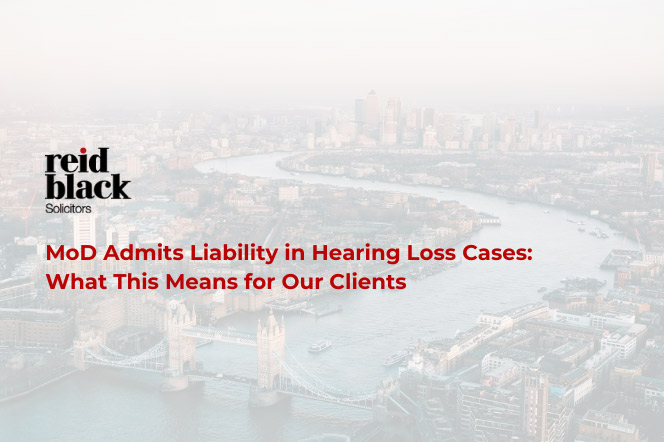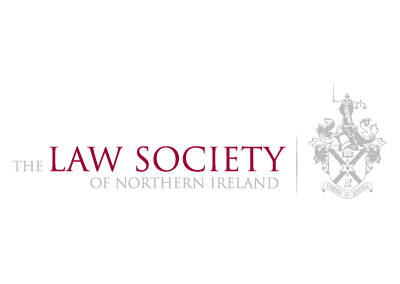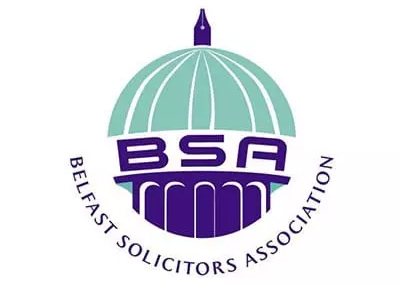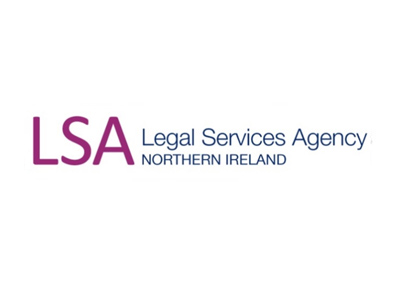Bereavement Services
Bereavement Services
Instructing a solicitor to extract Probate in Northern Ireland is not mandatory, but it is something we recommend as best practice.
Knowing what to do after a loved one’s death can be stressful without the added burden of dealing with the legalities of bringing their affairs to an end on your own. We have extensive experience of administering estates in Northern Ireland and can steer you through the process of bringing your loved one’s affairs to an orderly and dignified conclusion. Instructing our office is straightforward, and any legal fees or out-of-pocket expenses are paid by the deceased’s estate.
Applying for the legal right to deal with someone’s property, money and possessions (their ‘estate’) when they die is called ‘applying for probate’. If the person left a will, you’ll get a ‘grant of probate’. If the person did not leave a will, you’ll get ‘letters of administration’. This can often be a complex and extremely time consuming process and needs attending to at a time when you may not feel able to perform this task.
We are experienced in dealing with all aspects of Probate. Our specialist Probate Team have a sympathetic and patient approach when dealing with bereaved relatives and will happily arrange a visit to discuss your requirements in the comfort of your own home.
If someone dies without making a will, they are said to have died ‘intestate’. If this happens, the law sets out who should deal with the deceased’s affairs and who should inherit their estate (property, personal belongings and money). When someone dies without leaving a will, dealing with their estate can be complicated. It can also take a long time, months or even years in some very complex cases.
If matters are complex or you feel you need help, it’s a good idea to talk to us as soon as possible. You should show us all the information and documents you have about the deceased person’s property, belongings and financial affairs. In the meantime, it may be a good idea to put small valuable items away for safekeeping.
An executor is essentially the deceased’s representative, who is trusted to ensure that the deceased’s wishes as set out in their Will are fulfilled (or, in the event of intestacy, to divide the estate according to the rules of intestacy).
The executor’s key duties in distributing the estate are to:
- Create an inventory of all of the deceased’s assets, including immovable property (i.e. the deceased’s house and any other properties), furniture, cash, savings and personal possessions. This record of the estate must be precise and detailed, and so this is usually a time-consuming task for the executor. At this stage, the executor may also cancel the deceased’s direct debits and notify service providers (e.g. gas, electricity and telephone companies);
- Pay inheritance tax and meet any debts owed by the estate. IHT will not be due on every estate. If it is, it is important that the amount due is calculated accurately;
- Obtain a Grant of Probate;
- “Call in” the estate. This refers to the process of obtaining payments from banks, insurance companies, individuals and any other relevant bodies or organisations who have any assets belonging to the deceased. The executor will need to provide confirmation to receive these payments.
- Distribute the estate to the beneficiaries (i.e. “wind up” the estate; read more).
The executor will usually also have responsibility for administrative tasks such as arranging the funeral, notifying family and friends of the death, registering the death and obtaining a death certificate.
You may have been named as an executor in a deceased friend or relative’s Will but realise that acting as an executor will cause you a great deal of stress and administrative difficulty. It is important to note that executors are personally responsible for any mistakes made in carrying out the above duties. As such, if you are at all doubtful of your ability to fully and accurately carry out your duties as executor, you are strongly encouraged to obtain legal advice.
We will work with you in the way that best supports you at this time. For example, you might wish to use a solicitor to complete all of the legal steps in distributing the estate so that you can focus on organising the funeral, or you may require support with just some of the steps involved. We fully appreciate the emotional burden on any executor, and you can be assured that the solicitor you work with will provide an empathetic service tailored to your needs.
We will provide you with clear and practical advice.. If you plan to proceed as an executor, it is also useful to know that any expenses you incur in carrying out your duties will be met from the deceased’s estate, including our fees.
If the deceased was married or in a civil partnership
If the deceased had an estate worth £250,000 or less, then everything goes to the husband, wife or civil partner.
If the deceased had an estate worth over £250,000, then the husband, wife or civil partner won’t automatically get everything. They will receive:
- personal items, such as household articles and cars, but nothing used for business purposes
- £250,000 free of tax (£450,000 if there are no children) and the interest thereon
- if one child, one-half share of any residue remaining, or if more than one child, one-third share of any residue remaining
The rest of the estate will be shared by the following:
- children (or if none, grandchildren) will get an equal share
- if there are no children or grandchildren, surviving parents will get a share
- if there are no children, grandchildren or surviving parents, any brothers and sisters will get a share (or their children if they died while the deceased was still alive)
- if the deceased has none of the above, the husband, wife or registered civil partner will get everything
If there is no surviving spouse/civil partner
The estate is distributed as follows:
- to surviving children in equal shares (or to their children if they died while the deceased was still alive)
- if there are no children, to parents (equally, if both alive)
- if there are no surviving parents, to brothers and sisters or to their children if they died while the deceased was still alive
- if none of the above then to grandparents (equally if more than one)
- if there are no grandparents to aunts and uncles (or their children if they died while the deceased was still alive)
- to the Crown if there are none of the above (through the Crown Solicitor’s Office)
If the deceased’s estate is below £10,000, and doesn’t contain any land, property or shares, then it may be possible to deal with it without obtaining a grant.
Also, a grant might not be needed if the whole of the estate is held in joint names and passes automatically to the surviving joint owner.
Inheritance Tax is a complex area of Tax, Generally, it is a tax on the estate (the property, money and possessions) of someone who’s died.
There’s normally no Inheritance Tax to pay if either:
- the value of your estate is below the £325,000 threshold
- you leave everything above the £325,000 threshold to your spouse, civil partner, a charity or a community amateur sports club
If the estate’s value is below the threshold you’ll still need to report it to HMRC. If you give away your home to your children (including adopted, foster or stepchildren) or grandchildren your threshold can increase to £475,000. If you’re married or in a civil partnership and your estate is worth less than your threshold, any unused threshold can be added to your partner’s threshold when you die. This means their threshold can be as much as £950,000. The standard Inheritance Tax rate is 40%. It’s only charged on the part of your estate that’s above the threshold. Some gifts you give while you’re alive may be taxed after your death. Depending on when you gave the gift, ‘taper relief’ might mean the Inheritance Tax charged on the gift is less than 40%. Other reliefs, such as Business Relief, allow some assets to be passed on free of Inheritance Tax or with a reduced bill. Funds from your estate are used to pay Inheritance Tax to HM Revenue and Customs (HMRC). This is done by the person dealing with the estate (called the ‘executor’, if there’s a will). Your beneficiaries (the people who inherit your estate) do not normally pay tax on things they inherit. They may have related taxes to pay, for example if they get rental income from a house left to them in a will. People you give gifts to might have to pay Inheritance Tax, but only if you give away more than £325,000 and die within 7 years.
The list of reliefs referred to above is not exhaustive – there are numerous other exemptions and other applicable laws. There are also various inheritance tax reliefs in respect of agricultural assets, businesses, and business assets. It is vital to ensure IHT is correctly calculated, to avoid claims against the estate and delays in the winding up process. The services of an experienced solicitor can be invaluable in offering reassurance that IHT has been paid accurately and efficiently. We pride ourselves on providing detailed and pragmatic advice tailored to our client’s particular situation, and we can interact with HMRC on our clients’ behalf. When required we also obtain advice from accountants and tax experts.
- National Insurance number
- NHS number
- date and place of birth
- date of marriage or civil partnership (if suitable)
- Child Benefit number
- tax reference number
- organ donor card (if registered)
Organ donation
After a death you will have to act quickly if it was the wish of the deceased or the nearest relative to donate organs for transplant. The next-of-kin will usually be approached to make sure they do not object to organ donation.
If the death has to be reported to the coroner, the coroner’s consent may be necessary before the organs or body can be donated. A medical certificate must be issued before any organs can be removed or the body donated for medical teaching.
The doctor attending will advise on procedure. After organ donation, the body is released to the relatives.
- Organ donation
First five days
- tell the family doctor
- register the death at the relevant Registrar’s Office, except where the death has been referred to the Coroner
- find the will – the deceased person’s solicitor may have a copy if you can’t find one
- begin funeral arrangements – you will need to check the will for any special requests
- if relevant, a completed Form 36 should be sent to the local Jobs and Benefits office about the deceased’s benefits (given to you when you register the death; read the reverse to see if it applies)
- if the person who has died was getting any benefits or tax credits you can contact the Bereavement Service
- if the person who has died was a Blue badge holder, the badge must be returned to the Blue Badge Unit
- if the deceased was the first named on an insurance policy, make contact as early as possible to check that you are still insured
Surviving relatives and friends of the deceased may need to make a new will. You don’t need to do this urgently, and we can assist.
If there is a will
Contact the executor if this isn’t you. This person is usually nominated in the will to sort out the deceased’s affairs. They can then start the process of applying for probate by contacting us.
If there is no will
- decide who will apply to sort out the deceased’s affairs
- contact us.
Who to tell
As well as informing people who are close to the person, in many cases you’ll need to close down accounts, or cancel or change insurance details, subscriptions, agreements, payments or direct debits.
Here’s a list to help you keep track.
- relatives and friends
- employer
- school
- solicitor
- accountant
Government organisations
- the relevant Tax Office
- National Insurance Contributions Office if they were self-employed (to cancel payments)
- Child Benefit Office (at latest within eight weeks)
- Land & Property Services (LPS) if they were a ratepayer or getting Housing Benefit, Rate Relief or Rate Rebate
- UK Identity and Passport Service to return and cancel a passport
- Driver Vehicle Agency (DVA) to return any driving licence, cancel car tax or return car registration documents/change ownership
- Local councils in Northern Ireland
Financial organisations
- general insurance companies for home, car, travel or medical
- pension providers
- life insurance companies
- banks and building societies
- mortgage provider
- hire purchase or loan companies
- credit card providers and any store cards
Utilities and household contacts
- landlord or local authority if they rented a property
- any private organisation/agency providing home help
- utility companies if accounts were in the deceased’s name
- Royal Mail(external link opens in a new window / tab) if mail needs re-directing
- TV/internet companies with which the deceased had subscriptions
You may be able to claim certain benefits and one-off payments if you lived with or were dependent on the deceased. Time limits apply, so contact your nearest Jobs and Benefits office as soon as possible to find out.
- Bereavement Support Payment
- Funeral Expenses Payment
If you pay rates you may also be eligible for rate relief and exclusions like Lone Pensioner Allowance or Housing Benefit/Rate Relief.
Remember we can offer advice in relation to any queries you may have.
News
PSNI Data Breach: There’s Still Time to Register Your Claim
Admin2024-11-20T15:32:34+00:0020th November, 2024|
The recent PSNI data breach has caused widespread concern among affected individuals. If you believe your data has been compromised, you can still take...
MOD Admits Liability in Noise-Induced Hearing Loss Cases: What This Means for Our Clients
Admin2024-11-18T09:58:38+00:0013th November, 2024|
Recently, headlines have been filled with news about the Ministry of Defence (MOD) admitting liability in noise-induced hearing loss (NIHL) cases following a group...
PSNI Data Breach Cases Update – September 2024
Admin2024-09-27T11:35:57+01:0027th September, 2024|
This matter was listed before the High Court Judge for Review on Tuesday 24th September 2024. Following several meetings and negotiations with the legal...
News and Case Studies

Hearing Loss Claim Against Daintifyt Factory
Miss N from Limavady has been awarded £22,500 in compensation after making a hearing loss claim against Daintifyt. Miss N was employed by Daintifyt for 20 years. Miss N noticed her hearing was reduced...

Hearing Loss Claim Against Herdman’s Mill
Mrs M from Strabane has been awarded £8,900 in compensation after making a hearing loss claim against Herdman’s Mill. Mrs M was employed by Herdmans for 11 years. Mrs M noticed her hearing had...

Hearing Loss Claim Against Herdman’s Mill
Mrs L from Castlederg has been awarded £16,250 in compensation after making a hearing loss claim against Herdman’s Mill. Mrs L was employed by Herdmans in Sion Mills for 13 years. Mrs L noticed...
Client Testimonials
Client Testimonials





















